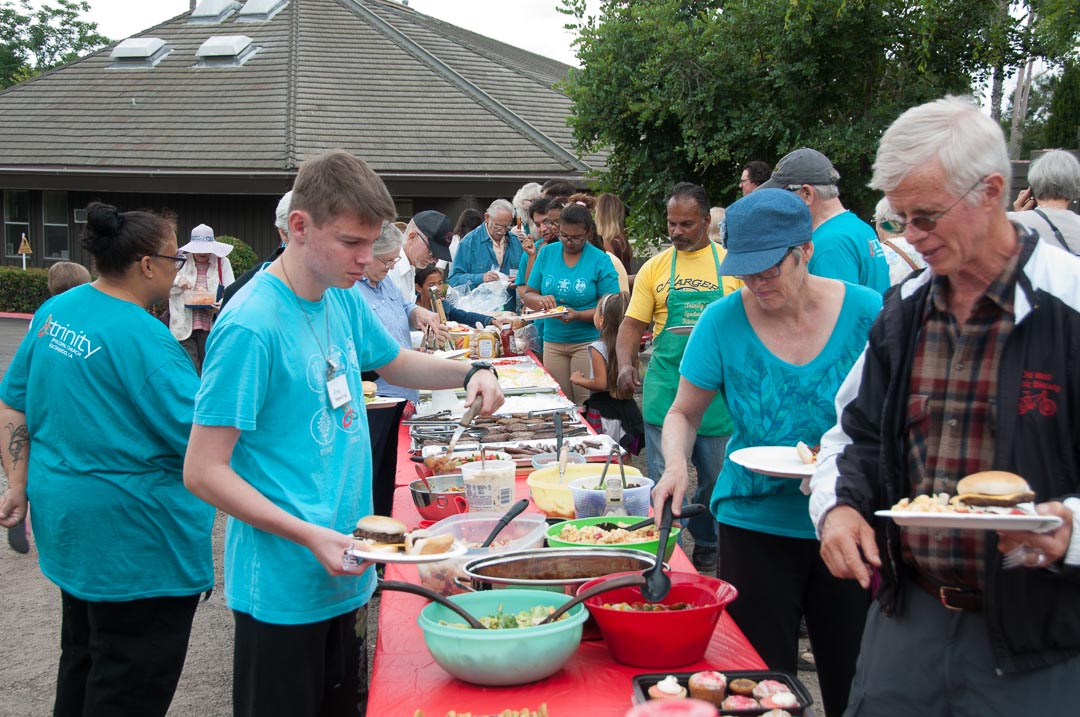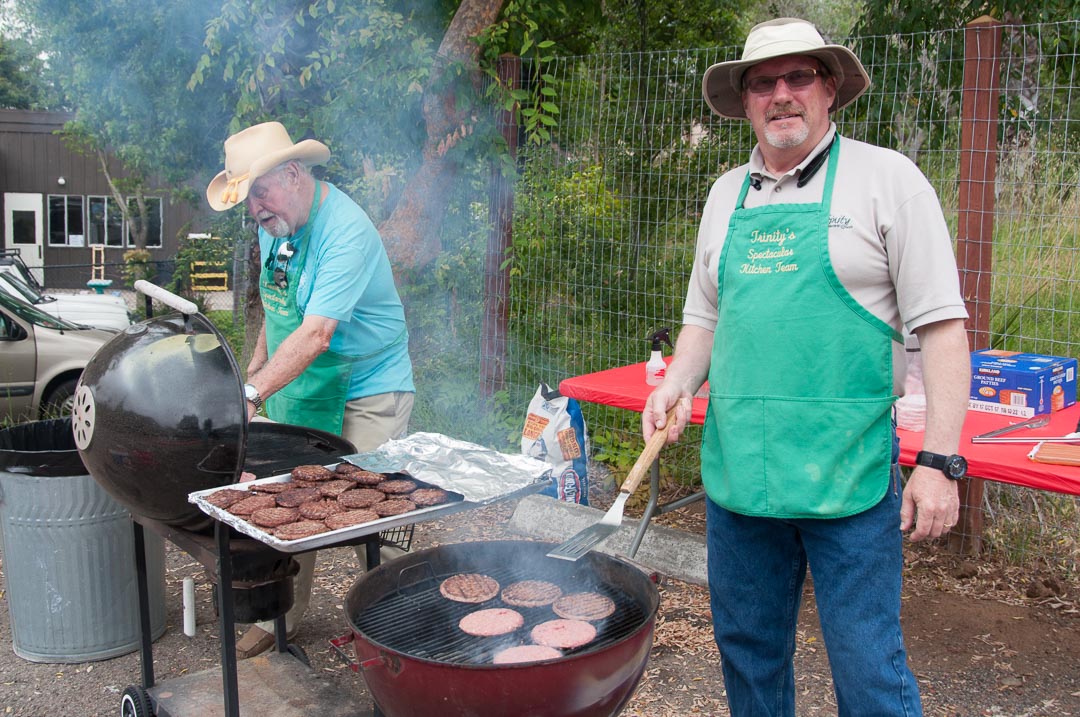I’m spiritual, not religious.
 You know what that means. The traditions and structures of organized religion stand in the way of a real relationship with God. In shedding the burdens of dogma, I can be authentic. I don’t need anyone to tell me who God is. Real faith is the one I create for myself.
You know what that means. The traditions and structures of organized religion stand in the way of a real relationship with God. In shedding the burdens of dogma, I can be authentic. I don’t need anyone to tell me who God is. Real faith is the one I create for myself.
So it may seem odd, even offensive, that we would make such a big deal about Trinity Sunday. A day dedicated to doctrine—what are we thinking? Yes, the name of this congregation is Trinity, but does that name mean much? Like all Christians these days, we say the creed with our fingers crossed, emphasizing this phrase, falling silent at another one. Right?
Now, some words on behalf of dogma:
At its best, doctrine gives space. Creeds can be a litmus test, defining who is in and who is out, which is not a bad thing. Standing for something is not being exclusive, it is purposeful, and truthful. Not every statement using the name of God is true. You don’t have to look far to find examples of people saying horrific things in the name of God—just because they are authentic to themselves doesn’t mean we should celebrate their faith. Dogma draws a line that needs drawing.
What we don’t often recognize is that the creeds create a wide space for disagreement. Denominations and congregations create doctrinal statements (many posted on their websites) because, in their opinions, the traditional creeds do not go far enough. These churches seek a uniformity creeds do not provide. The doctrine of the Trinity says something true about God, but does not spell out everything. Christians can, and do, disagree about implications while sharing fundamentals.
Saying something, to avoid saying nothing
What do we celebrate on Trinity Sunday? We believe in a dynamic God, active in history, bringing new revelation, and definitively present in Jesus. The Christian story also upholds a unity in that activity—God has not been replaced throughout the ages by a new God. Belief in such a God is rooted in history and experience–we’re not making this up as we go along—but such a faith is relevant to the present, able to learn, change, and respond to new issues and knowledge. We are not stuck with a Bronze Age understanding of the divine. In the Trinity we encounter mystery—God beyond our comprehension. We recognize a God of relationship, not simply an object of study and speculation, but Someone to be known. As we celebrate the Trinity, we know that our words will never be adequate to describe God. New words will be used, but always rooted in the Christian revelation.
recognize a God of relationship, not simply an object of study and speculation, but Someone to be known. As we celebrate the Trinity, we know that our words will never be adequate to describe God. New words will be used, but always rooted in the Christian revelation.
Theology, history, revelation—all more relevant to our lives than we think. On Trinity Sunday we take a moment to remember both mystery and connection as we live out a faith that isn’t just about us, but changes our lives.
